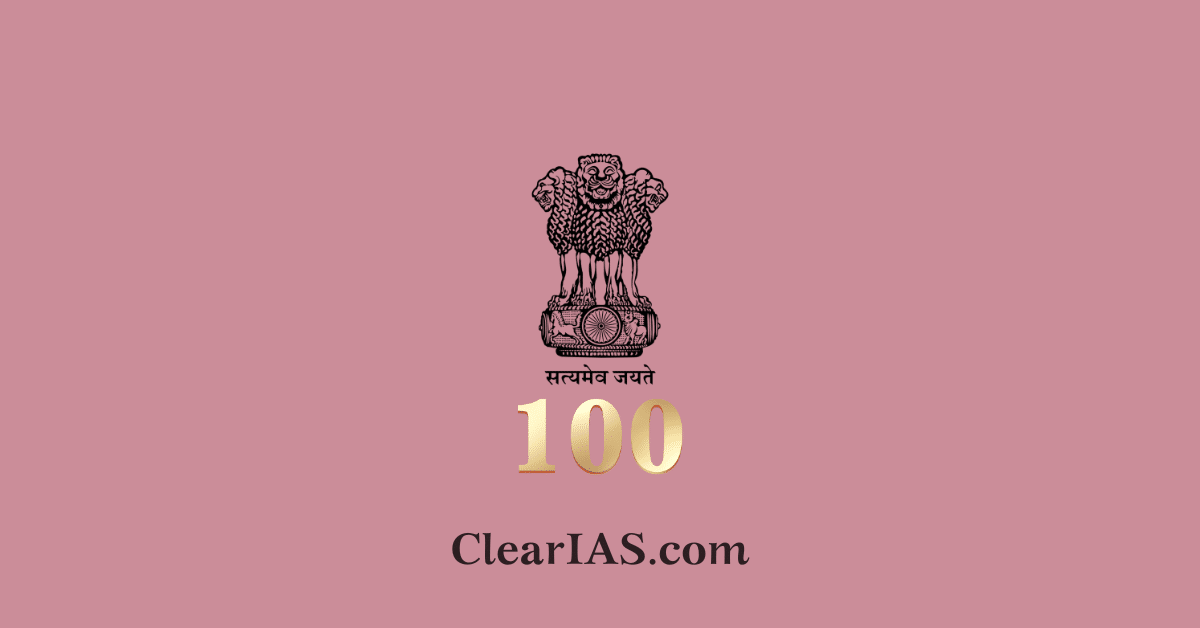
A 100 Years of UPSC: The Journey of UPSC as the Guardian of Meritocracy as it completes a century of its existence. Read here to trace the legacy of UPSC over the century.
On October 1, 2025, the Union Public Service Commission (UPSC) completes a century of its existence.
More than just an institution, it embodies the principle of meritocracy that India’s founding leaders deemed essential for building a professional, impartial, and efficient civil service.
For millions of aspirants across generations, the UPSC has symbolised fairness, opportunity, and integrity, assuring them that success in the civil services depends not on privilege or patronage, but on talent and hard work.
100 Years of UPSC: Key Milestones
- 1924 – The Lee Commission Report recommends the establishment of an independent Public Service Commission in India.
- 1926 – Public Service Commission of India established (October 1), chaired by Sir Ross Barker.
- 1935 – Government of India Act, 1935, strengthens the Commission’s role.
- 1947 – UPSC continues post-Independence; ensures fair recruitment during the transition.
- 1950 – UPSC given Constitutional status under Articles 315–323 of the Indian Constitution.
- 1979 – Kothari Committee reforms introduced the Civil Services Aptitude framework → Prelims & Mains exam structure.
- 1980s–90s – Expansion of services covered; exam increasingly competitive with rising applicants.
- 2000s – Syllabus modernisation: governance, environment, international relations added to GS papers.
- 2011 – Civil Services Aptitude Test (CSAT) was introduced in the prelims.
- 2013 – Ethics, Integrity & Aptitude paper introduced in Mains to test governance values.
- 2020s – UPSC adapts to pandemic challenges with digitalisation, e-admit cards, and online transparency measures.
- 2025 – UPSC completes 100 years: A century as India’s guardian of meritocracy, with record-high aspirants (~10 lakh annually) and reputation as one of the world’s most credible recruitment institutions.
Origins: From Colonial Vision to Independent Institution
- The concept of an independent recruitment body for the higher civil services emerged during the colonial era.
- The Government of India Act, 1919, first provided for such a commission.
- Following the Lee Commission Report (1924), the Public Service Commission of India was set up in October 1926.
- The Lee Commission highlighted that an impartial and politically insulated civil service was essential for democratic governance.
- Post-Independence, the UPSC was given a constitutional status under Articles 315–323 of the Indian Constitution, making it one of the few institutions specifically safeguarded by the framers of the Constitution.
Role and Responsibilities
Over the years, UPSC has functioned as the watchdog of meritocracy in the Indian administrative system. Its responsibilities extend beyond civil services recruitment:
- Recruitment: Conducts examinations for the All India Services (IAS, IPS, IFS) and Central Civil Services.
- Advisory Role: Advises the government on promotions, appointments, and disciplinary matters.
- Reforms and Adaptations: Continuously updates exam patterns to reflect evolving needs of governance — incorporating aptitude tests, essays, ethics, and general studies reflecting governance, environment, and international relations.
Significance in Nation-Building
- Guardian of Fairness: By insulating recruitment from nepotism and political interference, UPSC has preserved the legitimacy of state institutions.
- Nation-wide Opportunity: It provides a level playing field, allowing candidates from diverse socio-economic and regional backgrounds to aspire for the highest administrative positions.
- Meritocracy as a Pillar of Democracy: A professional, merit-based bureaucracy ensures continuity, stability, and effective policy implementation regardless of changing governments.
- Symbol of Trust: UPSC examinations, though tough and demanding, are perceived as one of the most credible recruitment systems in the world.
Challenges Along the Way
- High competition and stress: Millions apply annually for a few hundred posts, leading to mental and financial strain on aspirants.
- Changing skill requirements: Governance today demands new expertise in technology, environment, global economy, and social justice, challenging the UPSC to adapt its syllabi and testing mechanisms.
- Equity Concerns: While ensuring fairness, UPSC also faces the challenge of balancing meritocracy with social justice and accommodating affirmative action in recruitment.
Way Forward
As India completes 100 years of its premier recruitment body, the UPSC faces the task of modernising itself to remain relevant in a rapidly changing world:
- Embracing digital and AI-driven exam processes to enhance transparency.
- Focusing on 21st-century governance skills like climate policy, digital economy, and international law.
- Continuing to maintain its independence from political interference while nurturing inclusivity and diversity in civil services.
Conclusion
The centenary of UPSC is not merely a milestone in institutional history but a celebration of India’s faith in fairness, merit, and integrity in governance.
For millions of aspirants, the UPSC continues to symbolise the promise of democracy, that talent and dedication, not privilege or connections, remain the surest path to serving the nation.
As India marches ahead, the UPSC’s enduring role as the guardian of meritocracy will remain indispensable to building an inclusive, efficient, and democratic state.
Related articles:






Leave a Reply